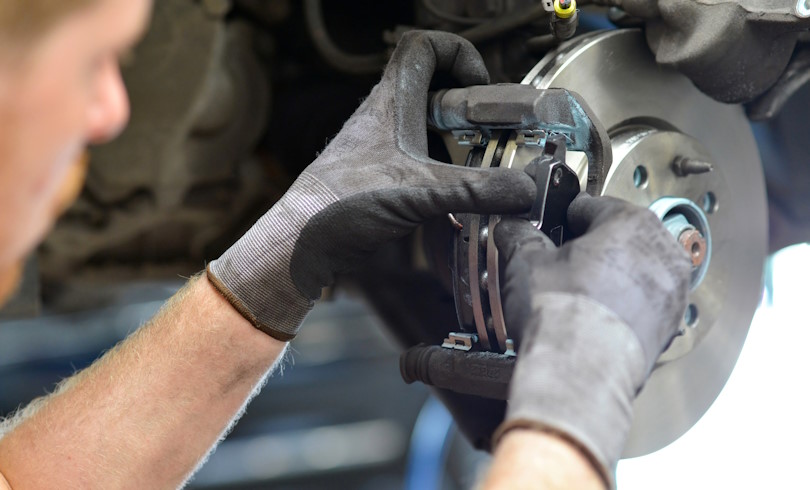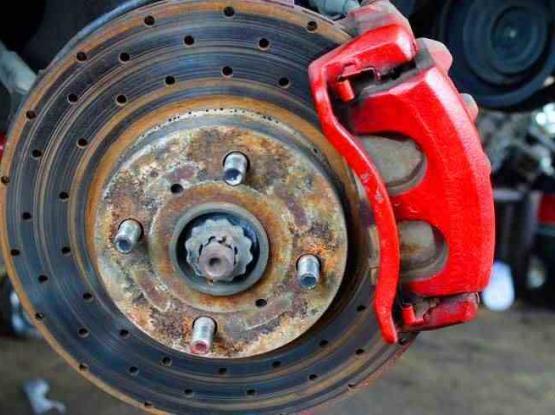It’s frustrating to ask, “why are my brakes squeaking?”—especially right after you’ve invested in new pads and rotors. While it can feel alarming, a light, temporary squeal is actually common with new brake components. Below are the most likely reasons why your new brakes squeak and what you can do about it.
Common Reasons New Brakes Squeak
1) Normal Break-In (Bedding) Noise
Fresh pads need time to transfer a thin, even layer of material onto the rotor. During the first 100–300 miles, you may hear a high-pitch squeak as the pad and rotor surfaces mate. This is the most common reason why new brakes squeak briefly.
2) Pad Material & Design
- Semi-metallic pads can be a bit noisier by nature due to metallic fibers.
- Ceramic pads are typically quieter but can still squeak until fully bedded.
- Lack of chamfers or shims can increase the chance of squeal.
3) Morning Moisture & Surface Rust
Overnight humidity or rain can flash-rust rotors. The first few stops scrape it off, which can cause a brief squeak. If it disappears after a couple of stops, it’s usually harmless.
4) Glazing From Light, Prolonged Braking
Riding the brakes or frequent gentle stops during early miles can “glaze” the pads/rotors, making them slick and noisy. This is a frequent cause of why my brakes squeak after new pads and rotors.
5) Hardware & Lubrication Issues
- Dry or seized caliper slide pins.
- Missing or worn anti-rattle clips/shims.
- Lack of high-temp brake lubricant on key contact points (not the friction surface).
6) Rotor Finish or Pad Quality
Lower-grade pads or a rough rotor finish can contribute to squeal. Quality parts with the proper finish typically run quieter once broken in.
7) Wheel Torque Imbalance
Over- or uneven-torqued lug nuts can introduce slight rotor runout, which may manifest as squeak or light vibration under braking.
When Your Brakes May Squeak NOT From New Pads
Sometimes a squeak isn’t related to new brake components at all. Even if you haven’t recently replaced pads or rotors, these situations can cause an occasional or persistent squeal:
- Worn brake pads: Thin pads with built-in wear indicators are designed to squeal as a warning sign that it’s time for replacement.
- Debris or road grime: Small stones or dust can get lodged between the pad and rotor and create a sharp squeak until removed.
- Loose or damaged hardware: Missing clips or loosened caliper bolts can create vibrations that sound like a high-pitched squeal.
- Rust buildup: Rotors that sit unused for long periods can develop surface rust that squeaks until it’s worn off by braking.
- Suspension or steering issues: In some cases, worn bushings or ball joints can mimic brake noise under certain conditions.
If you’re noticing brake noise but haven’t had recent brake work, a professional inspection can pinpoint whether it’s a simple cleaning fix or a more serious maintenance need.
How to Reduce or Eliminate Brake Squeal
- Complete a proper bed-in: Perform a series of medium stops (per your vehicle or pad manufacturer’s guidance) to evenly transfer pad material to the rotors.
- Drive normally for 100–300 miles: Mild, consistent braking helps new components settle.
- Keep the system clean: Brake dust buildup can amplify noise—periodic cleaning helps.
- Use quality parts: OE-equivalent or premium pads/rotors, plus new hardware (clips, shims).
- Verify torque: Ensure wheels are torqued to spec in a star pattern.
- Service hardware: Lubricate slide pins and contact points with the correct high-temp brake grease.
When a Squeak Means “Get It Checked”
- Grinding, growling, or scraping noises (not just a light squeal).
- Vibration in the pedal or steering wheel under braking.
- Pulling to one side, soft pedal, or increased stopping distance.
- Persistent squeal that lasts well beyond the break-in period.
Bottom Line
If you’re wondering “why do my brakes squeak after new pads and rotors?” the cause is often normal bedding, moisture, or minor hardware noise that settles with a proper break-in. If the sound persists or worsens, professional inspection is the safest move.
Schedule Brake Service at Paul’s Auto Repair
Still asking, “why do my new brakes squeak?” Let the ASE-certified pros at Paul’s Auto Repair take a look. We’ll road-test your vehicle, inspect pads, rotors, shims, and hardware, and perform any adjustments or lubrication needed to restore quiet, confident stopping. Call Paul’s Auto Repair today or book your brake inspection online—and drive away with peace of mind.

